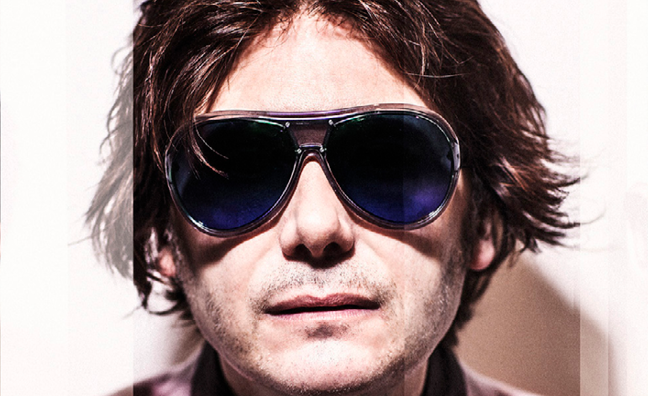Manic Street Preachers are back in the charts this week with the reissue of Know Your Enemy. Here, the band’s iconic bassist and lyricist Nicky Wire reflects on his career so far...
The most important lesson I’ve learnt during my career is…
“Dedication is equal to talent. The two have to be together, otherwise both of them end in failure.”
Know Your Enemy was a reaction to This Is My Truth being so big...
“A lot of bands get to that point where they react against what made them huge and I guess This Is My Truth was our most arena and stadium-sounding album. There are moments on Know Your Enemy that I truly love, but we weren’t at our most disciplined... I think we were deluded at that point to think that we could still convert people, which was mad because it’s such a difficult record to comprehend what we’re on about anyway. We made it in a studio out in Spain and it was boiling hot – it wasn’t a great studio to be honest – and we were just lying around the swimming pool for days. But it’s great to have a grand folly in your record canon. When I look back at it, I’m glad that it’s truly messed up like [The Clash’s] Sandinista! and [The Rolling Stones’] Their Satanic Majesties Request. It’s not as good as those, but it’s something we can always laugh about.”
It was my idea to launch Know Your Enemy in Cuba…
“We were recording in Spain and I realised that quite a few of the lyrics were infused with that idea of Cuba standing up to the United States. It wasn’t a Communist utopia or anything like that, but the idea of that last Socialist bastion. The album itself had a lot of political elements and there is a track specifically about Cuba, Baby Elián, so I remember saying to James [Dean Bradfield], ‘We should try and launch this in Havana’. Fair play to Scott Thomas (of X-Ray Touring), he did an amazing job putting it all together. I feel a sense of bewilderment that we actually pulled it off and that Rob Stringer, again, allowed us to do it – because it was an incredibly expensive exercise. There are much easier and more cost-effective ways to launch an album. It was such a dramatic week out there, almost like an out of body experience. Most things I can remember vividly, but I can’t remember as much of that week as I can of a shitty gig in Wolverhampton in 1991. It was like being in a film, it was an amazing experience. There were about 100 journalists at this one press conference we did and it was the most bewildering experience. I don’t think we realised how big it would be...”
The way I see touring has changed because…
“When you first start, it is amazing - it’s new and it’s you against the world - those first two or three years are so special. Then it becomes a bit of a drag and you feel physically and mentally different, but later on you come to appreciate it again. We find going to places we love a total inspiration for writing. Wherever you are, there’s always something that can start off a lyric – it’s the one thing that’s sustained us through 25 to 30 years of being in a band.”
Playing Cuba was almost like an out of body experience
Nicky Wire
Calling our third album The Holy Bible was brave in retrospect…
“When Richey [Edwards] suggested it, I didn’t even think about it, it just seemed totally natural. I remember there was one territory in Europe that wouldn’t release The Holy Bible because of the title – perhaps a Catholic country, I don’t know – and that was the first time I thought, ‘Fuck me, it is a funny old title.’ But at the time, it wasn’t a debate at all. Fair play to Sony/Epic, they never said a word. It was a much freer time in terms of artistic licence.”
We’re pretty loyal to the people we work with…
“Scott Thomas [X-ray Touring] has been our agent since around ‘95; Martin Hall [Hall Or Nothing] has been our manager since ‘91 with Philip Hall, who sadly passed away; Simon Moran [SJM Concerts] has been our promoter and we’ve been on the same record label [Sony] all that time as well.”
One of the most important factors in our success has been…
“Our ambition. In the early days there was this kind of indie snobbery: You weren’t supposed to play arenas or stadiums, and go on Top Of The Pops and actually enjoy it. But we had a desire to communicate to as many people as possible. We obviously know that there are limits as you get older, but that still drives us and there’s a certain magic about that.”











